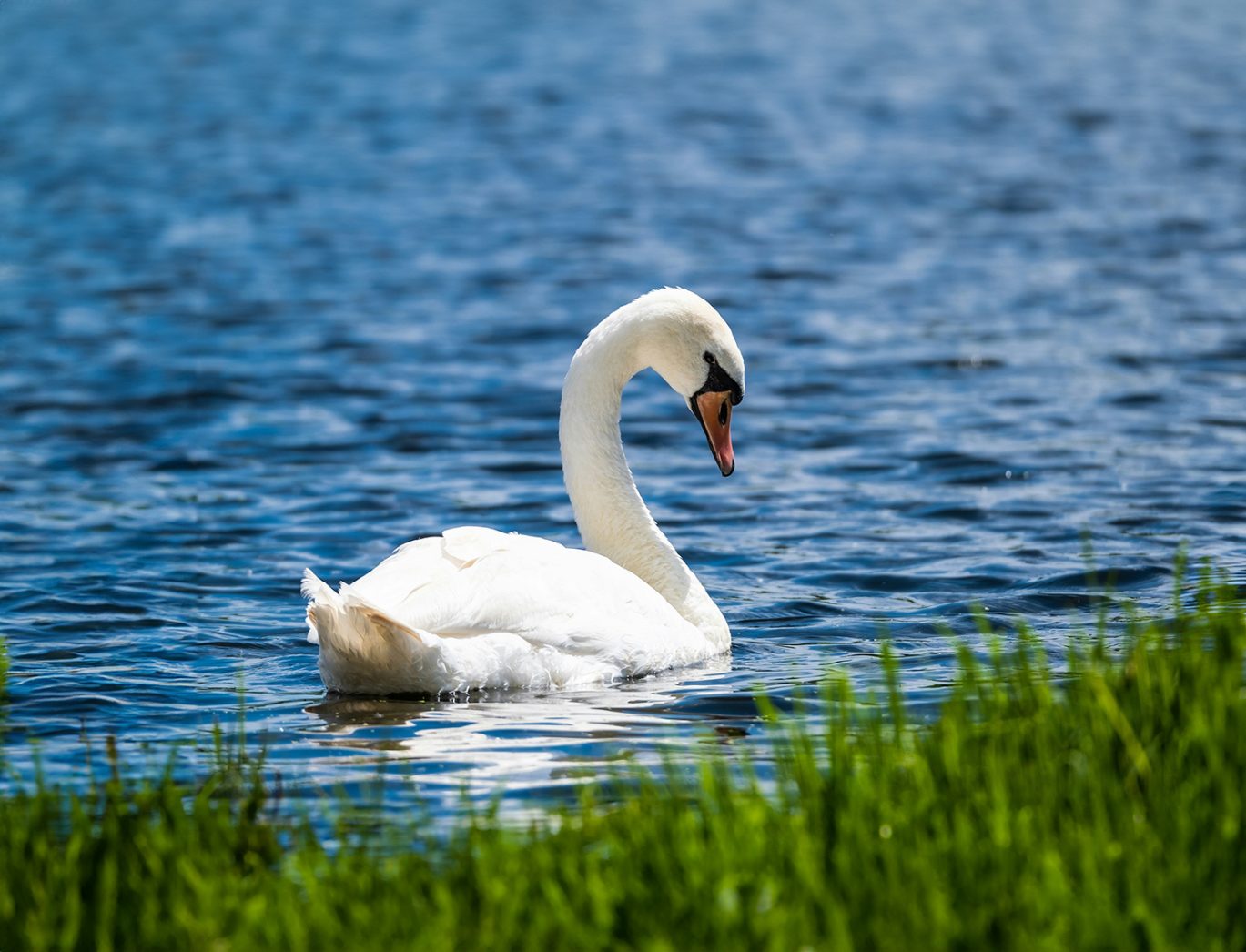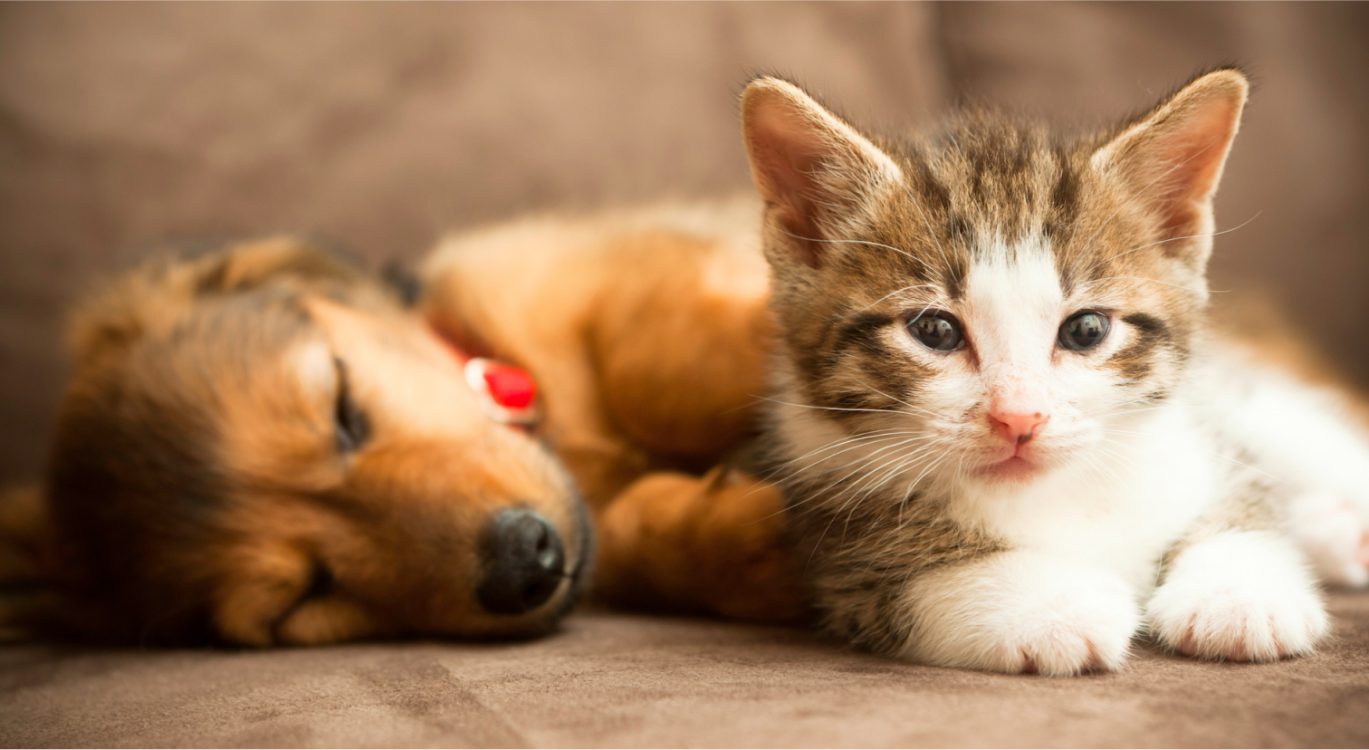
Swans
The term ‘waterfowl’ refers to birds which are strong swimmers with waterproof feathers and webbed feet.
As the name suggests, waterfowl spend a lot of their time on the water, living on ponds, lochs and rivers. Swans, ducks and geese build their nests on the banks and their diet is make up of foods from in and around the water such as small fish, vegetation, insects and molluscs.
Many country parks and nature reserves around Scotland are home to waterfowl.
Swans are the largest of the group and can be easily identified by their white feathers and long necks.
Mute swans are the only species who reside in Scotland all year round. Although they don’t usually migrate, they may move location if the food supply is scarce.
Whooper swans migrate from Iceland to spend the winter here. They look very similar but the two species can be told apart by their bills; mute swans have an orange bill with a black bump at the base whereas whooper swans have a yellow beak with a black V-shape on either side.
Although it’s very rare to see a Bewick’s swan in Scotland, some have been lucky enough to spot the birds around the Firth of Forth estuary.
Ancient Greek philosophers, Aristotle, Plato and Socrates all believed that swans’ singing voices were most beautiful right before they died, coining the term ‘swan song’, meaning final performance.
Where do swans live?
Swans live in and around shallow bodies of water such as ponds, lochs and rivers anywhere from urban parks to countryside reserves.
What do swans eat?
Their long, slim necks help them forage for vegetation and molluscs from the bottom of the loch or riverbed. They can also eat insects, small fish, frogs and worms.
Their natural diet is usually in plentiful enough supply to allow them to thrive on their own but in freezing weather conditions, they can benefit from supported feeding.
Too much bread can cause dietary problems but If you want to feed the local swans, you can throw fresh grains and greens such as lettuce into the water for them.
When are baby swans born?
A pair of bonded swans will generally mate for life, using the same nest site for their entire lives.
They build large nests close to the water’s edge, using materials like twigs and long grasses.
After breeding in the spring, the female lays an egg every other day, laying around five to 12 eggs in total.
The parents take it in turns to incubate the eggs. The female plucks the feathers from her underside to line the nest. This bald area, known as a ‘brood patch’, allows the eggs to sit closer to her body to keep them warm during incubation and is usually nothing to worry about.
After 35 to 42 days, the eggs are ready to hatch. The whole clutch of eggs generally hatches within a 24-hour period.
The babies are called cygnets and they have fluffy grey feathers. They will stay in the nest for a further 24 hours before entering the water.
Will a swan attack me?
Swans will usually keep away from people but they are fiercely territorial, particularly in the breeding season. They are powerful birds and could seriously injure a human or another animal if they feel threatened.
Stay well back, keep children away from them and make sure dogs are kept on leads.
Swan fights
For your own safety, never attempt to approach or separate fighting swans.
When swans fight, or prevent other swans from entering the water, it is usually a territorial dispute or youngsters being driven off by the parents to find a new territory of their own. Although this can be distressing to witness, it is natural behaviour for swans.
If the birds involved are uninjured, they should be left alone. One of the birds will eventually fly off to a new area to establish a territory of their own.
Common problems for swans
Swans stuck in ice
If temperatures are unusually low and the water is very still, swans may become stuck. However, this is very rare and their body temperature is usually enough to thaw the ice.
Swans are incredibly powerful birds and can usually break any ice that forms around them to free themselves and fly away.
We cannot put our animal rescue officers or inspectors at risk on frozen water. Do not attempt to free the bird yourself by venturing on to frozen waterways or by throwing objects in an attempt to break up the ice. This could cause serious injury to the bird and put your own safety at risk.
Injuries from other animals and dog bites
Swans can get injured in disputes with other swans over territory. They can also be attacked or bitten by other animals such as foxes and dogs. Always keep dogs on leads in areas where there are swans.
Litter and pollution
Sadly, our waterways do not always make the most habitable environments for swans and cygnets. Items thrown into lochs or ponds can cause serious injuries to these large birds. Likewise, pollutants that get into the water or natural algae can make swans sick.
Fishing materials
Swans can become tangled in fishing wire or nets that are not discarded properly. They can also mistake fishing hooks or bait for food and try to swallow it, causing serious injuries.
Cygnet separated from parents
Cygnets are heavily reliant on their parents until they reach maturity. If you spot a cygnet on their own, monitor them for a period of time to make sure the parents return.
Juvenile swans moving on
When it’s time for young swans to find their own territory, the parents chase them away. This can look very aggressive but does not usually harm the swans.
Displaced or lost swans
Occasionally swans land on roads or in car parks.
If you come across a live swan on the road, exercise precaution in line with the highway code. Pull over when it is safe to do so and contact Police Scotland on 101 to ask for assistance from traffic control. Our officers are happy to assist Police
Scotland where possible. Other organisations offering road maintenance services, such as BEAR Scotland and Amey, may also be able to help.
If the swan is lost elsewhere, monitor it from a distance to see if it can find its way back to water.
Illegal activity
It is illegal to cause deliberate or reckless harm to swans, their eggs and their nests. If anyone commits offenses like destroying a nest or shooting swans with an airgun, this crime should be reported to Police Scotland on 101.

Support us from £5 a month
It costs us £63,000 every day to continue the work that animals across Scotland depend on. Our work is only possible because of the generosity of people like you.


